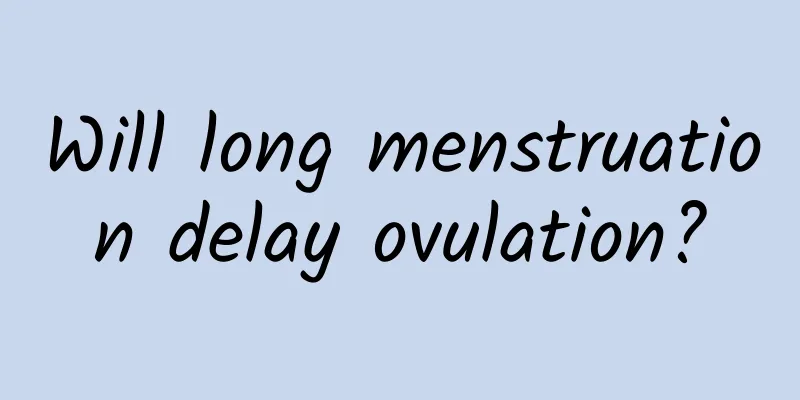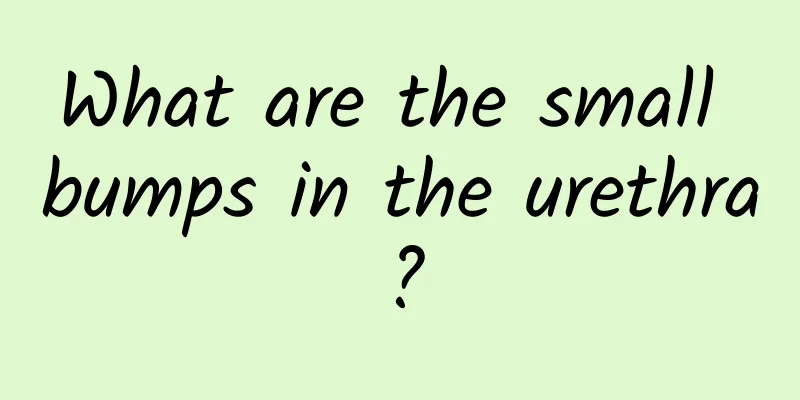The dangers of cardiac preexcitation syndrome, beware of some complications

|
Heart disease is becoming more and more common. There are many types of heart disease, but cardiac preexcitation syndrome is a special type of heart disease that has a great impact on daily life. Over time, it can lead to low blood pressure, chest pain, difficulty breathing, and even fainting. 1. The hazards of cardiac preexcitation syndrome Preexcitation syndrome is a very special heart disease clinically. It is mainly because during the embryonic development of the heart, myocardial tissue is left over from the atrioventricular ring structure, which creates an additional "bypass" for the conduction of cardiac excitation. In some cases, patients experience paroxysmal tachycardia, which affects their work, life and study. If this continues for a long time, it may develop into heart enlargement, and in severe cases it can cause the patient to have low blood pressure, difficulty breathing, chest pain, fainting, etc. Patients with preexcitation syndrome who have never had tachycardia or who have occasional but mild episodes do not need treatment. 2. Treatment Methods Preexcitation itself does not require specific treatment. When concurrent supraventricular tachycardia occurs, the treatment is the same as general supraventricular tachycardia. When atrial fibrillation or atrial flutter occurs, if the ventricular rate is fast and accompanied by circulatory disorders, synchronized direct current cardioversion should be used as soon as possible. Lidocaine, procainamide, propafenone, and amiodarone slow conduction along the accessory pathway, which can slow the ventricular rate or convert atrial fibrillation and flutter to sinus rhythm. Digitalis accelerates conduction along the accessory pathway, while verapamil and propranolol slow down conduction within the atrioventricular node, both of which may significantly increase the ventricular rate or even develop into ventricular fibrillation, so they should not be used. If supraventricular tachycardia, atrial fibrillation or atrial flutter occurs frequently, it is advisable to take the above-mentioned antiarrhythmic drugs orally for a long time to prevent attacks. For patients whose atrial fibrillation cannot be controlled by drugs, whose electrophysiological examination confirms that the refractory period of the bypass is short or the refractory period of the bypass is shortened during rapid atrial pacing, or whose ventricular rate reaches about 200 beats/min during an attack of atrial fibrillation, there are indications for electrical, radiofrequency, laser or cryoablation after positioning, or surgical severance of the bypass to prevent attacks. 3. Preventive Care The prevention of preexcitation syndrome is mainly to prevent the recurrence of tachycardia. In order to effectively prevent the recurrence of tachycardia, two drugs should be used to simultaneously inhibit the forward and reverse conduction of the reentrant circuit, such as quinidine and propranolol, or procainamide and verapamil, which can achieve better results. Class IA and IC drugs such as amiodarone or Sol can prolong the irregularity between the atrioventricular accessory pathway and the atrioventricular node, which can effectively prevent the recurrence of tachycardia. Drug selection can be based on clinical experience, or the use of effective drugs determined by electrophysiological examinations can ensure the best effect in preventing recurrence. |
<<: Symptoms and common clinical manifestations of cardiac preexcitation syndrome
>>: What is cardiac preexcitation syndrome? You need to know the pathological cause.
Recommend
The efficacy and function of Bupleurum chinense
Speaking of Northern Bupleurum, it is estimated t...
Treatment methods for cervical spondylosis
When it comes to the disease of cervical spondylo...
How can I delay my period?
For healthy and mature women, the menstrual cycle...
Treatment of bone hyperplasia
Bone hyperplasia, also known as proliferative ost...
What are the symptoms of vulvar flat warts
Flat warts refer to human papillomavirus. This di...
How long can an elderly person live with a cerebral hemorrhage?
The physical constitution of the elderly is relat...
What Chinese medicine should I take for insomnia and tinnitus?
Insomnia and tinnitus can be said to be a very co...
What should I do if my child has a fever for several consecutive nights?
It is quite common for children to have continuou...
What to do if you have pharyngitis during pregnancy
When a woman is pregnant, her body's resistan...
Thirty-year-old healthy woman exercises to maintain heart rate
We all know that when women are over 25 years old...
Symptoms of missed miscarriage
Many of our friends may not be able to understand...
What are the symptoms of impotence?
The so-called deficiency of yang syndrome, in sim...
What to do if your heart is severely ischemic
If there is severe ischemia in the heart, it will...
What are the treatments for schizophrenia?
Mental illness not only causes great harm to the ...
What are the consequences of abnormal fetal heart rate?
Abnormal fetal heart rate has a great impact on t...









